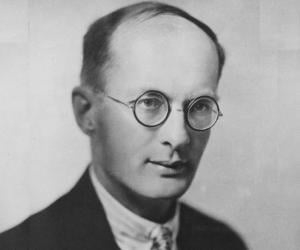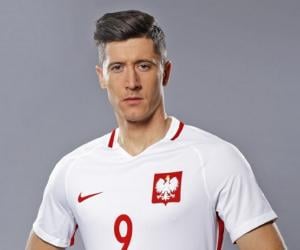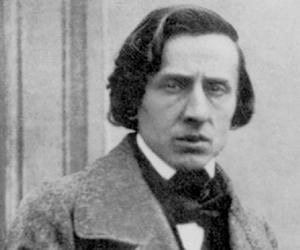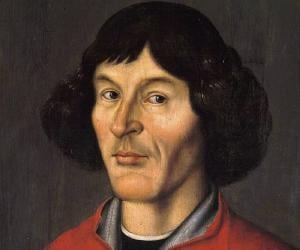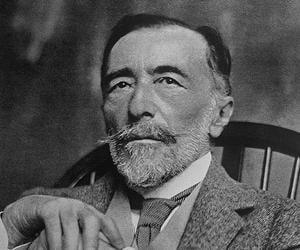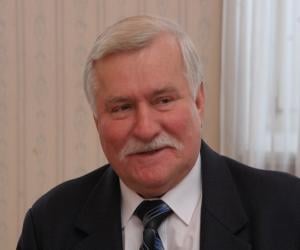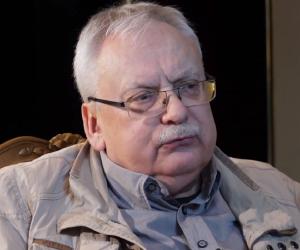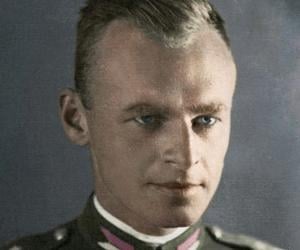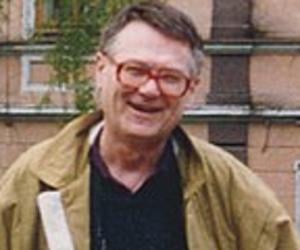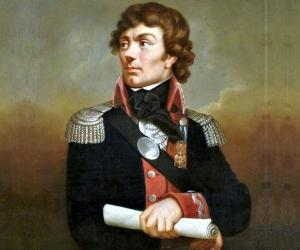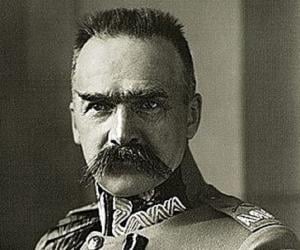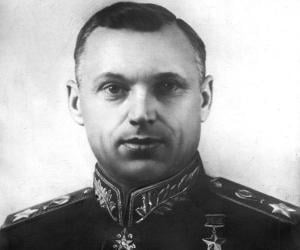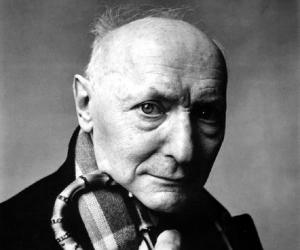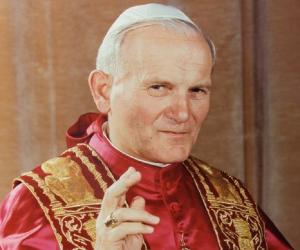Considered one of the best football players in the world, Robert Lewandowski plays for Bundesliga club Bayern Munich and leads the Poland national team as its captain. Known for his exceptional goal scoring ability and striking skills, Lewandowski has earned several accolades including Polish Player of the Year title for eight consecutive years. Besides, he is also a venture capitalist.
Romantic Era virtuoso pianist and composer Frédéric Chopin, nicknamed The Poet of the Piano, is remembered as the inventor of the instrumental ballade. The legendary composer mostly created solo piano masterpieces but also experimented with piano concertos and chamber pieces. He was influenced by Bach, Mozart, and Polish folk music.
Nicolaus Copernicus was a mathematician and astronomer. He is credited with formulating Heliocentrism, which led to the Copernican Revolution. Although Aristarchus of Samos had formulated Heliocentrism 18 centuries earlier, Copernicus was responsible for popularizing it. Copernicus is also credited with formulating an economic principle, which was later called Gresham's law.
Joseph Conrad was a Polish-British writer. Considered one of the greatest English-language novelists of all time, Conrad is credited with bringing a non-English sensibility into English-language literature. Many of his works have inspired several films, TV series, and video games. His anti-heroic characters and narrative style have influenced many authors like Salman Rushdie, F. Scott Fitzgerald, and T. S. Eliot.


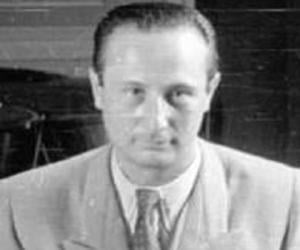
Władysław Szpilman was a Polish pianist of Jewish descent. He was a popular performer on Polish radio and in concert in the 1930s. He was also a prolific composer. He survived the Holocaust and was the central figure in the 2002 Roman Polanski film The Pianist. His son, Andrzej Szpilman, is also a composer and music producer.
Lech Walesa is a Polish dissident and statesman. From 1990 to 1995, Walesa served as the first elected president of Poland. A Nobel Peace Prize laureate, Walesa was adjudged Time Person of the Year in 1981. In 1999, he was named in the magazine's most important people of the 20th century list.
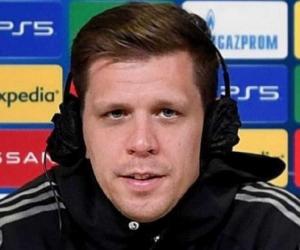
Polish fantasy author Andrzej Sapkowski is best known for his widely translated iconic book series The Witcher, which has also been made into a Netflix series. While he initially studied economics and worked as a sales representative, he soared to fame with the short story Wiedźmin, which later became The Witcher.
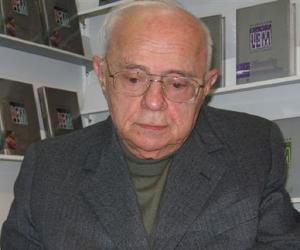
Stanisław Lem was a Polish writer who specialized in the science fiction genre. He was also a noted essayist who wrote on varied subjects, including philosophy, futurology, and literary criticism. His books, which have been translated into over 50 languages, have sold more than 45 million copies worldwide. He was the recipient of numerous awards and honors.

Known as prisoner number 4859 at the Auschwitz concentration camp, Witold Pilecki voluntarily got himself arrested to be sent to the camp, so that he could start an anti-Nazi resistance movement. He set up the underground campaign ZOW and was eventually able to escape. Nevertheless, he was executed by communists.
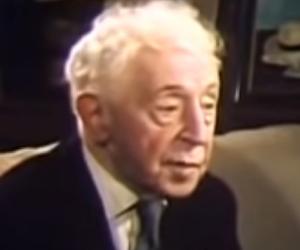
Arthur Rubinstein was a Polish-American pianist counted amongst the greatest pianists of all time. He had an extensive career spanning eight decades, during which he earned much international acclaim. He played music performed by several illustrious composers and is especially remembered for his interpretation of Chopin’s music. Renowned pianists François-René Duchâble and Avi Schönfeld were his students.

Tadeusz Kościuszko was a Polish-Lithuanian statesman, military leader, and military engineer. Thanks to his participation in the Polish-Lithuanian Commonwealth's fight against Prussia and Russia and his role in the American Revolutionary War, Tadeusz Kościuszko is widely regarded as a national hero in the United States, Poland, Belarus, and Lithuania.

Józef Piłsudski was a Polish statesman and one of the most influential personalities in Polish politics post World War I. From 1918 to 1922, he served as the Chief of State. From 1926 to 1935, he was regarded as the de facto leader of the Second Polish Republic and was largely viewed as the father of Interwar Poland.
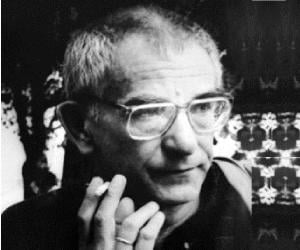


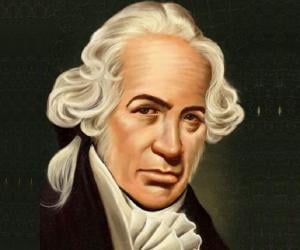
Daniel Gabriel Fahrenheit was a scientific instrument maker, inventor, and physicist. One of the most prominent and influential personalities of the Dutch Golden Age of science and technology, Fahrenheit is credited with many important inventions, including the mercury-in-glass thermometer and Fahrenheit scale. His inventions helped shape the history of thermometry.
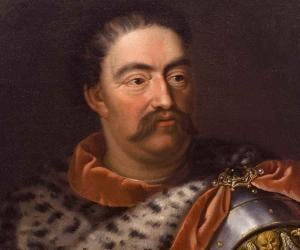
Well-educated and well-traveled, John III Sobieski initially joined the Swedes as a soldier, in opposing Polish ruler John Casimir. He then switched to the Polish side. He gradually rose through the ranks to become a grand marshal and a grand-hetman, and eventually became the king of Poland.
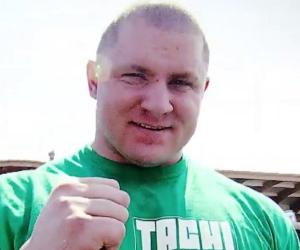
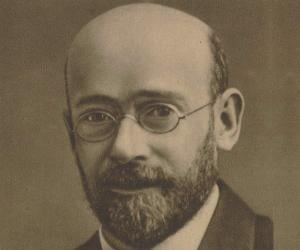
A reputed Polish doctor, Henryk Goldszmit was better known by his pseudonym, Janusz Korczak, which he used to write several children’s books. Apart from working as a pediatrician and a military doctor, he also owned a Jewish orphanage and stayed with the children while the Germans deported him and other staff to Treblinka.
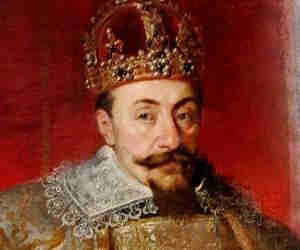
Sigismund III Vasa was the elder son of Swedish king John III Vasa. As the king of Poland and Sweden, he not only enjoyed prosperity but also tried to unite the two states, although he ended up creating conflicts between them. His lust for power also resulted in the Zebrzydowski Rebellion.


Konstantin Rokossovsky was a Soviet and Polish officer. One of the most important Red Army commanders during the Second World War, Rokossovsky also served as Poland's Defence Minister from 1949 to 1956. He also served as the Marshal of Poland and as the Marshal of the Soviet Union.
Nobel Prize-winning Polish-American author Isaac Bashevis Singer is best remembered for his short stories and novels that mirrored Jewish life with a tinge of irony. Born into a family of rabbis, he got a traditional education and later became a journalist. His works include the iconic novel The Family Moskat.
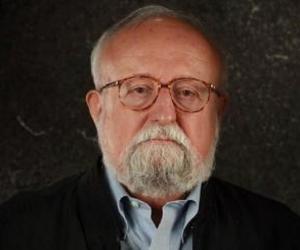
Krzysztof Penderecki was a Polish composer and conductor who achieved international recognition for his works, which include compositions like Threnody to the Victims of Hiroshima and Anaklasis. Krzysztof Penderecki was honored with several prestigious awards such as four Grammy Awards, the Wihuri Sibelius Prize, and the Wolf Prize in Arts.
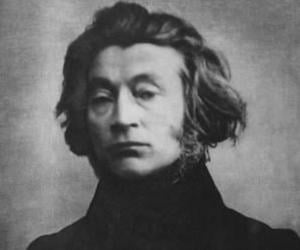
Adam Mickiewicz was a Polish poet, dramatist, essayist, and political activist. He was a major figure in Polish Romanticism and considered one of Poland's "Three Bards." He has long been regarded as Poland's national poet and is often compared to Byron and Goethe. The vast majority of his work is available only in Polish and has been reprinted numerous times.

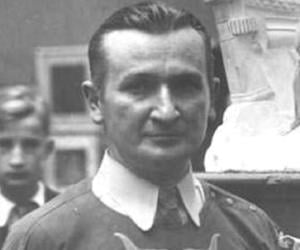

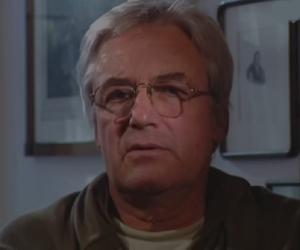
Known as a rebellious director, Polish filmmaker Andrzej Zulawski compromised on mainstream success to create a niche audience in the European art-house circle. His second film, Diabel, which depicted rape, violence, and bloodshed, was banned in Poland. He later moved to France, making films such as L’Important C’est d’Aimer.
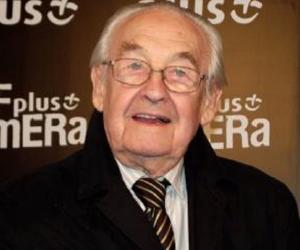

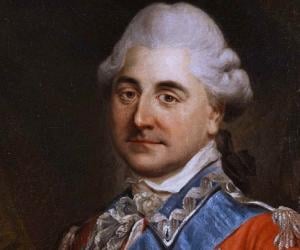
Stanisław August Poniatowski reigned as the King of Poland from 1764 to 1795. He is best remembered as the last ruler of the Polish-Lithuanian Commonwealth. Poniatowski made several attempts to reform and strengthen the ailing Commonwealth, which proved to be difficult due to several external and internal oppositions. He is often criticized for his failure to prevent the partitions.
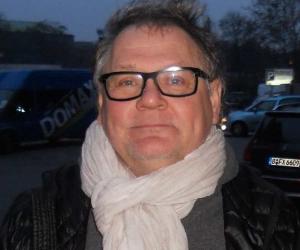
Pope John Paul II was the head of the Catholic Church from 1978 until his death in 2005. He is hailed for helping to end Communist rule in his native Poland and improving the Catholic Church's relations with Islam, Judaism, and the Eastern Orthodox Church. He was a lifelong football fan, having himself played the sport in his youth.
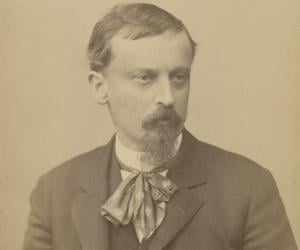
Henryk Sienkiewicz was a Polish journalist and novelist best remembered for his historical novels. He was the author of the internationally known best-seller Quo Vadis. Beginning his career as a journalist, he soon became one of the most popular Polish authors of his era. He was awarded the 1905 Nobel Prize in Literature for his contribution to literature.
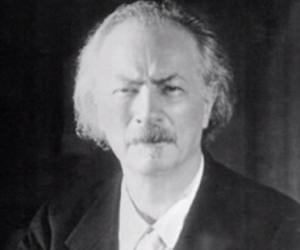
Ignacy Jan Paderewski was a Polish musician who went on to become the third Prime Minister of Poland after being a spokesman for Polish independence for a long time. He also played a significant role as the nation's foreign minister in 1919 when he signed the Treaty of Versailles, an important event that marked the end of World War I.

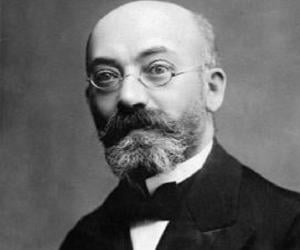
L. L. Zamenhof was an ophthalmologist best remembered for creating the most widely spoken international auxiliary language, Esperanto. He came up with the constructed language after being consumed by the idea of a warless world. L. L. Zamenhof received several honors for creating Esperanto, including the Légion d'honneur. He also received 12 nominations for the prestigious Nobel Peace Prize.
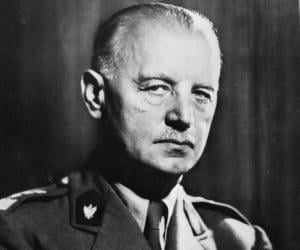
Władysław Sikorski was a Polish political and military leader. He played important roles in both the First and Second World War. A supporter of Polish independence prior to the war, Sikorski fought in the Polish Legions during World War I. He was also an influential figure in the newly created Polish Army that took part in the Polish–Soviet War.

Polish concert pianist and conductor Krystian Zimerman, noted for his interpretations of Romantic music, is counted by many as one of the greatest pianists of his generation. In 1975 he became the youngest winner of the International Chopin Piano Competition. A supporter of contemporary music, Zimerman has performed a wide variety of classical pieces, toured widely and made several recordings.
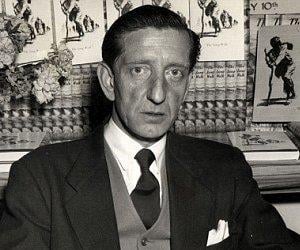
Slavomir Rawicz was a Polish Army lieutenant. He was imprisoned by the NKVD after the German-Soviet invasion of Poland and eventually made a miraculous escape, according to his own accounts. However, several authorities have questioned the veracity of his claims. After the war, he settled in England, married and raised a family. He later became a technician.
